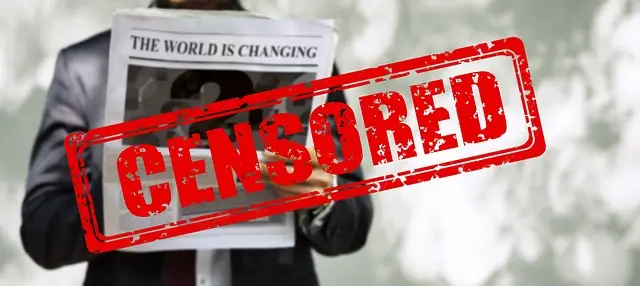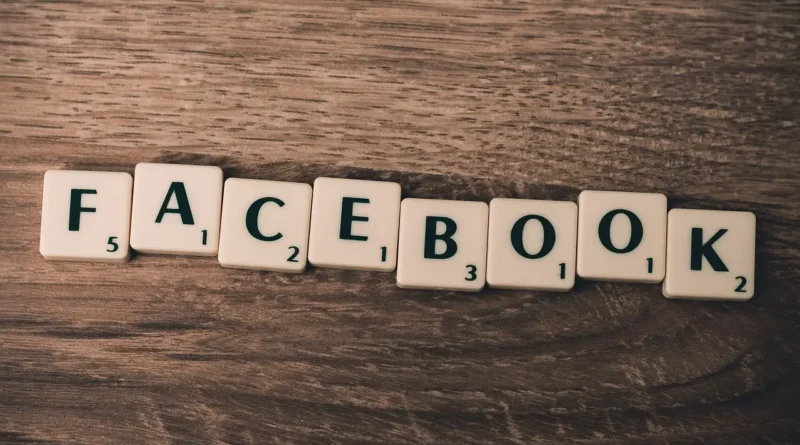Did Facebook Restore Free Speech
Facebook, Government Pressure, and the Evolution of Free Speech: A Post-Zuckerberg Era
Did Facebook Restore Free Speech? In the modern digital age, Facebook stands as one of the most significant platforms for global communication, sharing ideas, and expressing opinions. Over the years, the platform has been at the center of numerous controversies involving censorship, freedom of speech, and government intervention. One of the most prominent controversies involved allegations that Facebook had been coerced by various government entities to censor topics or restrict content that went against governmental narratives. This post will explore how Facebook was pressured into such actions, how Mark Zuckerberg admitted to these practices, and how the platform has since evolved towards greater transparency and free speech.
The Government’s Coercion of Facebook
Did Facebook Restore Free Speech? The roots of Facebook’s censorship controversies go back several years, coinciding with heightened political polarization in the U.S. and increasing governmental scrutiny of social media platforms. Beginning around 2016, Facebook faced intense pressure from both the U.S. government and international bodies to address issues of misinformation, foreign interference, and harmful content. Concerns over Russian interference in the U.S. presidential elections, the spread of false information about COVID-19, and incendiary political discourse drove officials to demand stricter moderation.
Several key moments highlight the increasing pressure on Facebook. During the pandemic, for example, the U.S. government urged Facebook to take down posts or discredit narratives that questioned official public health guidance on issues such as masks, vaccines, and lockdown measures. There were also reports that Facebook was asked to moderate content that criticized certain foreign policy decisions, like the U.S. withdrawal from Afghanistan or rising tensions with China.
One of the more publicized events was during the Hunter Biden laptop story. Right before the 2020 presidential election, The New York Post published a report suggesting controversial dealings between Hunter Biden and foreign actors, which many speculated could negatively impact the electoral chances of his father, Joe Biden. Facebook, citing concerns about disinformation, significantly reduced the circulation of the story on its platform. However, evidence later emerged that officials from the Federal Bureau of Investigation (FBI) had advised Facebook to be cautious about “Russian disinformation,” implying that the story could be part of a foreign interference effort.
While Facebook did not explicitly confirm that it was taking direct orders from the government at the time, internal leaks and various reports indicated that the platform was under immense pressure to align its moderation policies with the priorities of governmental bodies. Critics argued that Facebook’s actions crossed the line into unconstitutional territory, infringing on free speech and allowing the government to exert undue influence over what people could or could not see.

Zuckerberg’s Admission of Government Influence
Did Facebook Restore Free Speech? The pressure reached a critical point when Mark Zuckerberg, the CEO of Facebook (now Meta), made a surprising admission. In a 2022 interview with podcast host Joe Rogan, Zuckerberg acknowledged that Facebook had been approached by the FBI before the 2020 election. He stated that the FBI had warned the company about potential Russian disinformation related to the election, and that this prompted Facebook to take preemptive measures to limit the spread of potentially harmful content. Zuckerberg admitted that while Facebook did not outright totally ban the Hunter Biden laptop story, it greatly suppressed its reach, causing outrage among conservatives and free speech advocates.
This admission marked a turning point in the public’s understanding of the extent of government influence on Facebook’s moderation decisions. While the platform had long been accused of bias and censorship, Zuckerberg’s acknowledgment of a direct interaction with the FBI raised serious questions about the boundaries between government agencies and private corporations. Was Facebook a neutral platform protecting its users from misinformation, or had it become a tool for the government to shape public opinion?
Post-Admission Reforms at Facebook
Did Facebook Restore Free Speech? Following Zuckerberg’s admission, Facebook faced significant backlash, not just from conservative commentators but from users across the political spectrum. Calls for transparency, accountability, and the protection of free speech grew louder. In response, Zuckerberg and Meta implemented a series of reforms aimed at increasing transparency around content moderation, as well as creating more space for free expression on the platform.
1. Increased Transparency Through Oversight Board
One of the most significant steps that Facebook took to address concerns over censorship and free speech was the establishment of the Facebook Oversight Board, an independent body that reviews some of the platform’s content moderation decisions. Though the board was technically created before Zuckerberg’s admission, its role became more prominent in the wake of the controversy. The Oversight Board, which consists of academics, legal experts, and civil rights advocates, has been tasked with evaluating whether Facebook’s content takedown decisions are justified and consistent with its policies on free expression.
The board has reviewed several high-profile cases, including the suspension of former President Donald Trump’s account following the January 6th Capitol riots. While the board upheld Facebook’s decision to suspend Trump, it also called for clearer rules around when and why content or accounts are restricted, ensuring that Facebook’s actions are more transparent and consistent in the future. They obviously have a lot of work to do.
2. Greater User Autonomy in Content Curation
In an attempt to give users more control over what they see on their feeds, Facebook began to implement changes that allow users to customize the types of content they are exposed to. The “News Feed Preferences” feature now offers more robust tools to prioritize posts from friends and family over content from Pages or groups, giving users a greater sense of agency in deciding which narratives they engage with.
Additionally, Facebook introduced a “Content Moderation Transparency Report,” which provides regular updates on the types of content being removed, why it is being removed, and which government bodies (if any) were involved in flagging the content. This move towards transparency aims to mitigate the criticisms that Facebook was arbitrarily silencing certain viewpoints without accountability.
3. Reduction in Governmental Influence
Probably the most notable shift after the post-Zuckerberg admission has been Facebook’s more assertive stance on resisting governmental pressures to moderate content. The platform has, for example, publicly pushed back against requests to take down posts critical of government policies or positions. In several instances, Meta’s executives have signaled that they are committed to protecting user expression, even if that means standing up to regulatory bodies.
For instance, in the wake of growing tension over U.S. foreign policy, Facebook refused to comply with demands to censor anti-war protests and critical posts about U.S. involvement in foreign conflicts. This marks a departure from earlier periods when Facebook was more likely to comply with government pressure.

Moving Towards Free Speech: Examples of Policy Changes
There are several recent examples that demonstrate Facebook’s shift toward a more free speech-friendly environment:
1. Restoration of Previously Censored Content
Did Facebook Restore Free Speech? In a symbolic gesture, Facebook restored several posts and accounts that had previously been banned or suppressed, particularly those dealing with politically sensitive topics. For example, users who had their accounts restricted for posting content critical of the handling of COVID-19 were notified that their posts had been reinstated. This move highlights Facebook’s effort to distance itself from its prior over-censorship practices. This may be classified as a little bit late, but it’s a start in the long road to return of free speech in the future.
2. Clarification on Misinformation Policies
Another significant change has been Facebook’s refinement of its misinformation policies. Instead of outright banning content that challenges the consensus on issues like vaccines or election integrity, Facebook now provides context and additional information, allowing users to engage with multiple perspectives on these issues. This approach reduces the chances of one-sided narratives dominating the platform and reflects a commitment to the open exchange of ideas. Which will only be helpful when it works both ways.
3. Commitment to International Free Speech Standards
As Facebook continues to expand globally, it faces unique challenges in balancing free speech with local laws. In response, the platform has partnered with international organizations that advocate for free speech, ensuring that its moderation policies respect the principles of open expression, even in regions where censorship is prevalent.
Did Facebook Restore Free Speech?
Conclusion
Did Facebook Restore Free Speech? Facebook’s journey from government-coerced moderation to a platform more aligned with free speech has been a complex and controversial one. While the platform remains under scrutiny, the changes implemented since Zuckerberg’s admission mark a significant shift in how Facebook approaches content moderation. The introduction of the Oversight Board, increased user autonomy, and a stronger stance against government influence are all steps in the right direction.
However, only time will tell if these reforms will fully restore public trust in Facebook as a platform for open and free expression, or if new controversies will continue to emerge in the ever-evolving relationship between big tech, government, and free speech. Facebook has a long way to go to catch up with social media platforms such as Truth Social and X formerly Twitter. Elon Musk is the champion of free speech so far. Hopefully others will follow his lead.




